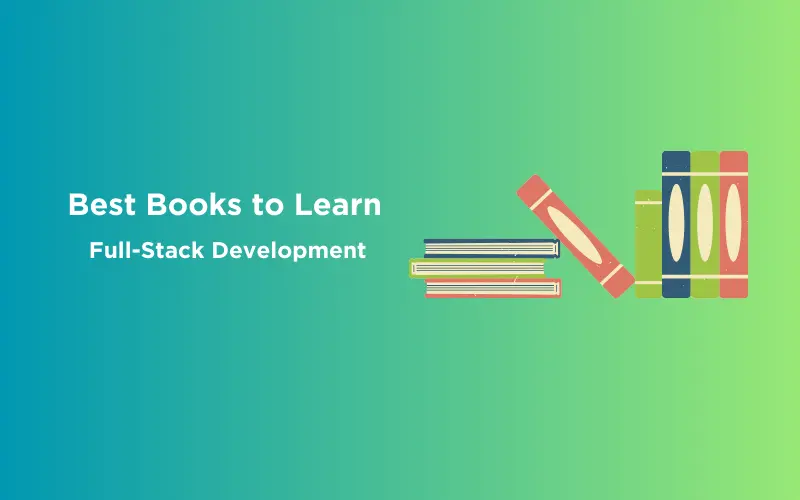
Best Books to Learn Full-Stack Development
Sep 18, 2024 5 Min Read 4076 Views
(Last Updated)
Are you interested in becoming a full-stack developer but not sure where to start? In this blog, we’ll introduce you to a list of books to learn full-stack development.
Full stack development means you can build the whole shebang – from the stuff people see on a website (like buttons and images) to the hidden parts that make everything work (like databases and server programs). In simple terms, it’s about making websites do cool things.
So, let’s explore these books and see how they can help you become a skilled full-stack developer. No matter if you’re new to coding or have some experience, these books have something valuable for you in your journey to becoming a full-stack developer.
Table of contents
- Best Books for Full-Stack Development
- Best Full Stack Development Books for Beginners
- A. "HTML and CSS: Design and Build Websites" by Jon Duckett
- B. "JavaScript and jQuery: The Missing Manual" by David McFarland
- C. "Node.js Design Patterns" by Mario Casciaro
- Full Stack Development Books for Intermediate Level
- A. "Eloquent JavaScript" by Marijn Haverbeke
- B. "Node.js Web Development" by David Herron
- C. "Learning React" by Alex Banks and Eve Porcello
- Full Stack Development for Advanced Level
- A. "Full Stack Development with JHipster" by Deepu K. Sasidharan and Sendil Kumar N
- B. "Django for Beginners" by William S. Vincent
- C. "MEAN Web Development" by Amos Q. Haviv
- Specialized Topics in Full Stack Development
- A. "Clean Code: A Handbook of Agile Software Craftsmanship" by Robert C. Martin
- B. "Continuous Integration: Improving Software Quality and Reducing Risk" by Paul M. Duvall
- Learning Resources Beyond Books for Full Stack Development
- Conclusion
- FAQs
- Why should I use books to learn full-stack development when there are so many online resources available?
- I'm a complete beginner in coding. Which book should I start with?
- What's the benefit of reading advanced books when I'm still a beginner in full-stack development?
Best Books for Full-Stack Development
A well-structured learning path is crucial when it comes to becoming a full-stack developer. Here, we’ll explore the components of full-stack development, understand the significance of a structured learning path, and introduce you to books suitable for various skill levels. Full stack development involves multiple components that work together to create web applications.
To master full-stack development, you should be familiar with:
Front-End Development: This is what users see and interact with on a website. It involves HTML, CSS, and JavaScript.
Back-End Development: This is the hidden part that handles data, logic, and server management. Key technologies include Node.js, Python, Ruby, and databases like MySQL or MongoDB.
Databases: Understanding databases, their types, and how to interact with them is essential.
Server Management: This involves deploying, configuring, and maintaining servers.
Before diving into the next section, ensure you’re solid on full-stack development essentials like front-end frameworks, back-end technologies, and database management. If you are looking for a detailed Full Stack Development career program, you can join GUVI’s Full Stack Development Course with Placement Assistance. You will be able to master the MERN stack (MongoDB, Express.js, React, Node.js) and build real-life projects.
To kickstart your full-stack development journey, here are some highly recommended books:
Best Full Stack Development Books for Beginners
If you’re just starting your journey in full-stack development, it’s essential to build a solid foundation in web development. These books are ideal for beginners:
A. “HTML and CSS: Design and Build Websites” by Jon Duckett
This book, with a remarkable 4.7 Amazon rating, is a fantastic starting point for web development. It breaks down HTML (the structure of a web page) and CSS (the styling) into simple, easy-to-understand language. You’ll learn how to create and design web pages from scratch, making it the perfect first step in your journey.
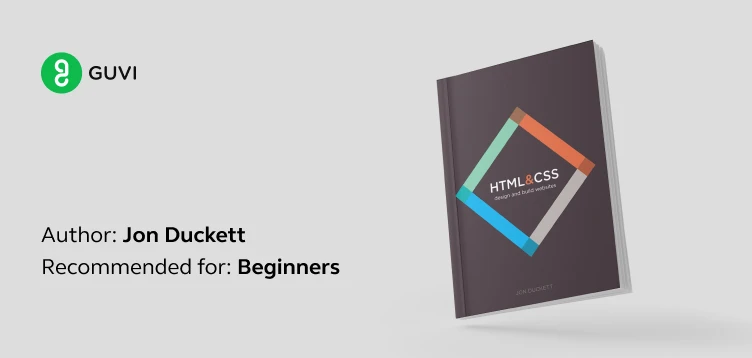
B. “JavaScript and jQuery: The Missing Manual” by David McFarland
JavaScript is a fundamental web development language, and jQuery is a popular JavaScript library. This book is perfect for beginners looking to understand the basics of JavaScript and jQuery. You’ll learn how to make web pages interactive and dynamic. People really like this book – it has a high 4.3-star rating on Amazon. It’s a helpful and reliable resource for beginners who want to understand these programming tools better.
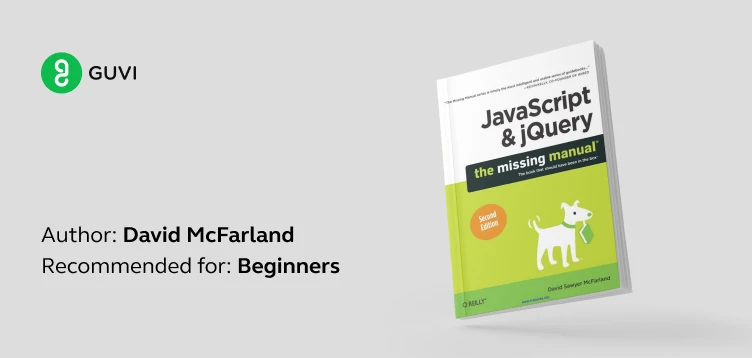
C. “Node.js Design Patterns” by Mario Casciaro
While Node.js might sound advanced, this book is a great introduction, highlighted by its 4.6 Amazon rating. It will help you understand the fundamental concepts and design patterns in Node.js. It’s an excellent choice for beginners who want to explore back-end development.
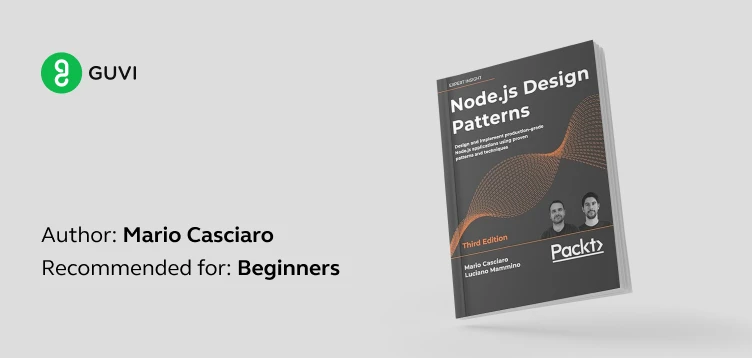
These books will provide you with a strong foundation in web development, making it easier for you to progress in your journey towards becoming a full-stack developer.
Also Read: Future Scope of Full Stack Developers in India!
Full Stack Development Books for Intermediate Level
If you’ve got the basics down and are ready to delve deeper into full-stack development, these intermediate-level books will help you further your skills:
A. “Eloquent JavaScript” by Marijn Haverbeke
“Eloquent JavaScript” is a highly regarded book that will take your JavaScript skills to the next level, holding an impressive 4.6 rating on Amazon. It explores the language in-depth, covers important concepts, and provides practical exercises. It’s an excellent resource for those looking to become proficient in JavaScript.
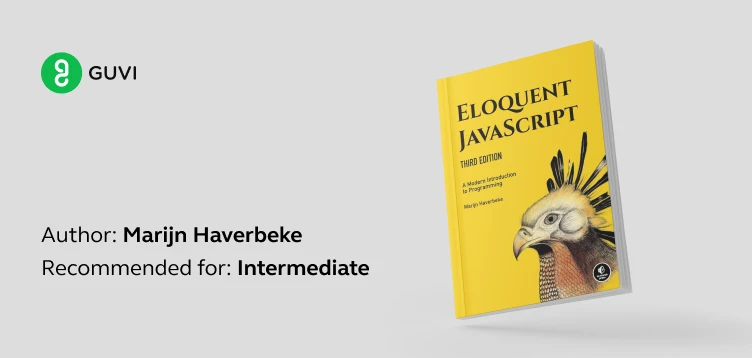
B. “Node.js Web Development” by David Herron
This book is perfect for those who want to expand their knowledge of back-end development with Node.js. It has a really good 4.0 rating on Amazon. It covers creating server-side applications and APIs, making it an excellent resource for those aiming to become full-stack developers.
Additionally, if you want to explore JavaScript through a self-paced course, try GUVI’s JavaScript certification course.
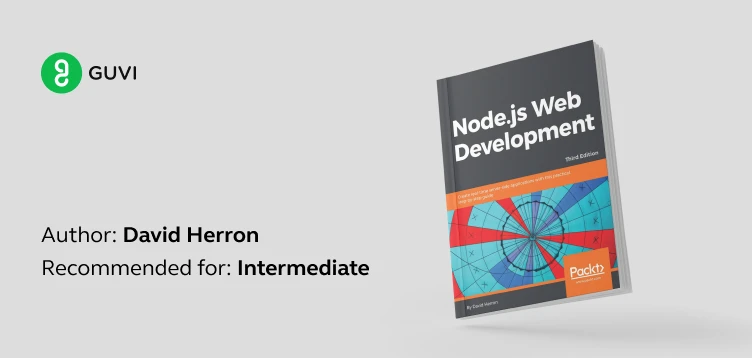
C. “Learning React” by Alex Banks and Eve Porcello
React is a popular JavaScript library for building user interfaces. This book will guide you through the world of React, teaching you how to create interactive and dynamic web applications. It’s a great choice for those looking to master front-end development. People love it on Amazon and gave it a high 4.4-star rating.
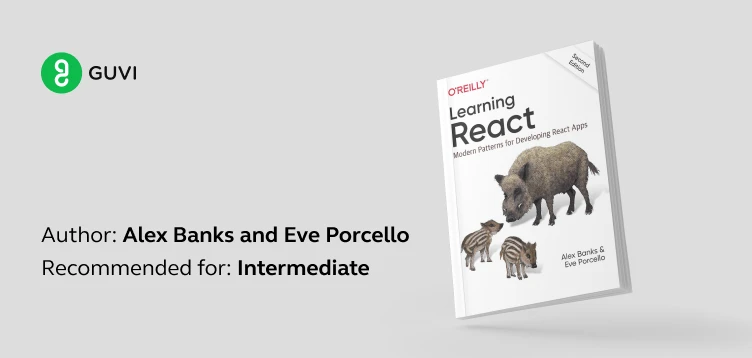
These intermediate-level books will help you deepen your understanding of web development and set you on the path to becoming a proficient full-stack developer.
Full Stack Development for Advanced Level
If you’re already a seasoned developer and want to take your full-stack development skills to the next level, these advanced books are highly recommended:
A. “Full Stack Development with JHipster” by Deepu K. Sasidharan and Sendil Kumar N
This book is ideal for advanced developers looking to explore modern full-stack development with JHipster. It covers various technologies, frameworks, and best practices, offering comprehensive insights for creating sophisticated web applications. It has a solid 3.9 rating on Amazon.
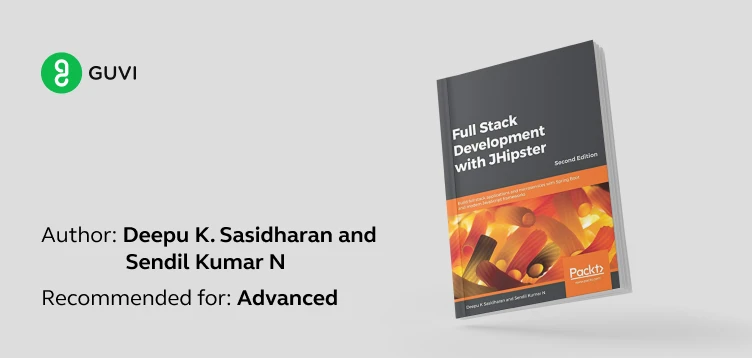
B. “Django for Beginners” by William S. Vincent
If you’re interested in web development with Python, this book is a top choice, boasting a 4.5-star rating on Amazon. It focuses on Django, a powerful web framework, and is suitable for developers looking to create advanced web applications.
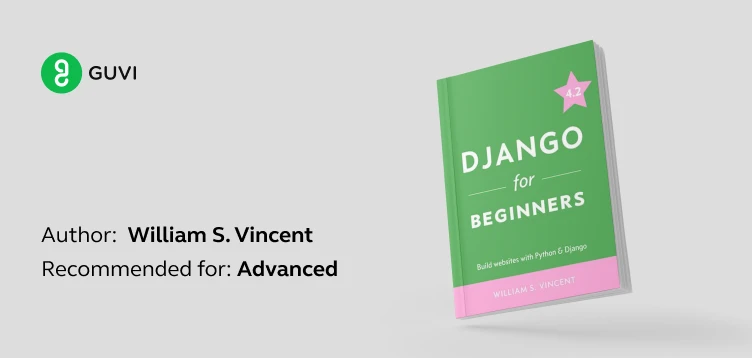
C. “MEAN Web Development” by Amos Q. Haviv
This book is a comprehensive guide for advanced developers interested in full-stack development using the MEAN stack (MongoDB, Express.js, Angular, and Node.js). It explores building real-world applications with a focus on modern, robust, and scalable solutions. People who bought it on Amazon gave it a 4.0 rating. It teaches lots of really advanced things and the best ways to make your apps work amazingly.
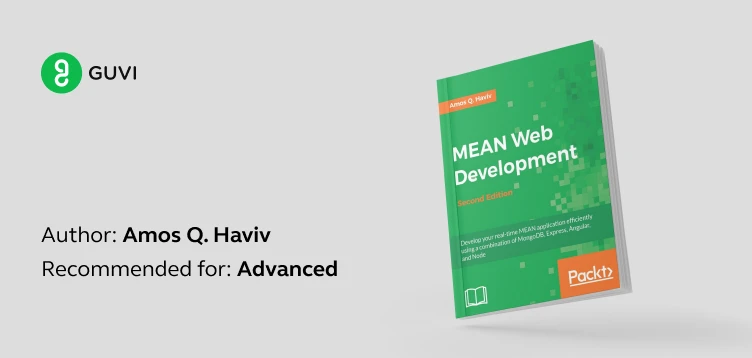
Specialized Topics in Full Stack Development
To truly excel as a full-stack developer, you should explore specialized areas that enhance your expertise. Here are some recommended books on specialized topics:
A. “Clean Code: A Handbook of Agile Software Craftsmanship” by Robert C. Martin
Writing clean and maintainable code is essential for any developer. This book by Robert C. Martin, a renowned software engineer, offers principles, patterns, and best practices for writing clean, efficient, and understandable code. It’s got a great 4.7 rating on Amazon, showing how much people like it. It’s all about making code that’s easy to read and work with.
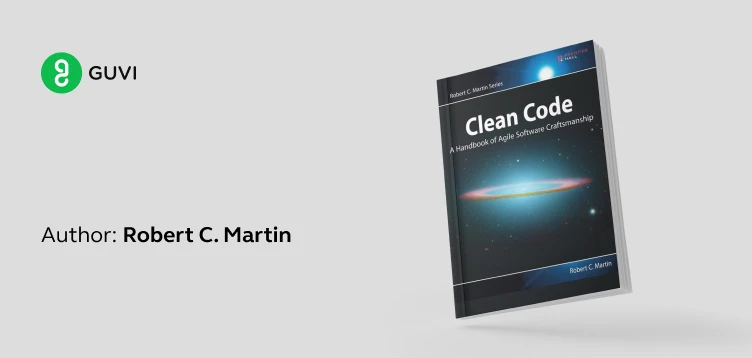
B. “Continuous Integration: Improving Software Quality and Reducing Risk” by Paul M. Duvall
Continuous Integration (CI) is a critical practice in modern software development. This book rated 4.3 stars on Amazon, explains the principles and practices of CI, helping you understand how to improve software quality and reduce risks by automating the building, testing, and deployment processes.
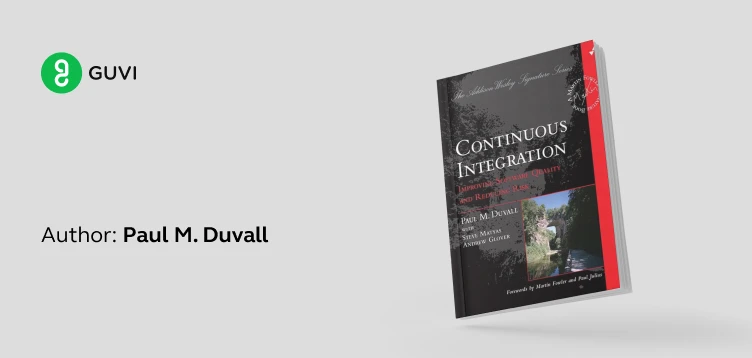
These specialized books will enhance your knowledge and skills in specific areas of full-stack development.
Learning Resources Beyond Books for Full Stack Development
While books are valuable, expanding your knowledge in full-stack development often requires a mix of resources. Here are some essential supplementary resources to enhance your learning journey:
Online Courses: Platforms like GUVI, Coursera, Udemy, and edX offer a wide range of courses in full-stack development. For example, GUVI’s Full Stack Web Development Bootcamp is a comprehensive program to explore.
Tutorials: Websites like MDN Web Docs and W3Schools provide tutorials and documentation for web technologies.
Forums: Join developer communities on platforms like Stack Overflow and Dev.to seek advice, share knowledge, and collaborate with other developers.
Mentorship: Finding a mentor can significantly accelerate your learning. Websites like MentorCruise help connect you with experienced professionals.
Local Meetups: Explore local tech meetups or groups on platforms like Meetup. Networking with peers and experienced developers can be immensely beneficial.
Online Communities: Join online communities like Dev. to and GitHub Discussions to engage with like-minded individuals and seek advice from experienced developers.
Remember, the key to mastering full-stack development is a combination of resources. Books provide structured learning, but practical experience, interaction with the community, and continuous learning through various channels are equally important in your journey.
Conclusion
If you’re thinking about learning full-stack development, go for it! It might seem like a big task, but everyone starts somewhere. The world of web development is exciting and full of opportunities. So, take that first step, and you’ll be amazed at what you can create.
Full-stack development is always changing. New things are invented, and old things are improved. So, it’s important to keep learning. Go to workshops, join developer communities, and stay curious. The journey of a full-stack developer is a long one, but your willingness to learn will make it enjoyable.
In short, full-stack development is an exciting field, and with the right books and a passion for learning, you’re all set to do great things. Whether you’re just starting out or already on your way, remember that every expert was once a beginner. So, don’t be afraid to begin, and may your full-stack development journey be as fun as it is educational! Happy coding!
FAQs
Why should I use books to learn full-stack development when there are so many online resources available?
Books offer structured, in-depth knowledge and a comprehensive learning experience. They provide a well-organized path, making it easier for learners to understand complex topics. While online resources are valuable, books can serve as reliable references and are written by experts. They also complement online learning by offering a different perspective.
I’m a complete beginner in coding. Which book should I start with?
If you’re new to coding and full-stack development, “HTML and CSS: Design and Build Websites” by Jon Duckett is an excellent choice. It offers a gentle introduction to web development with a focus on the fundamentals of creating web pages. This book provides a solid starting point for beginners.
What’s the benefit of reading advanced books when I’m still a beginner in full-stack development?
Reading advanced books, even as a beginner, can offer insight into the bigger picture and long-term goals. While you may not grasp everything immediately, it can motivate you and give you a sense of direction. You can revisit advanced books as you gain more experience to understand and apply their content better. Reading advanced material early can help you set high standards for your learning journey.
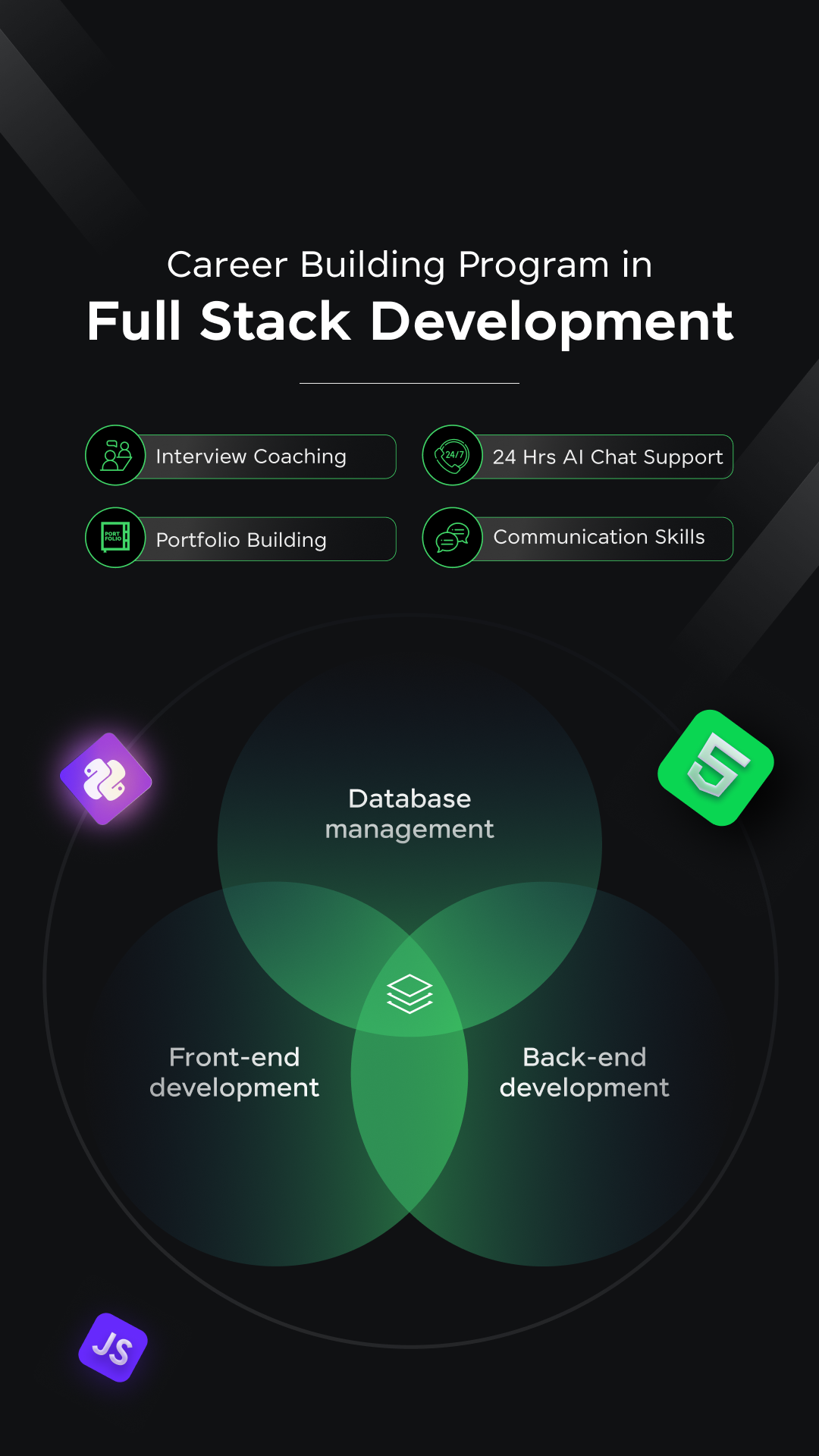








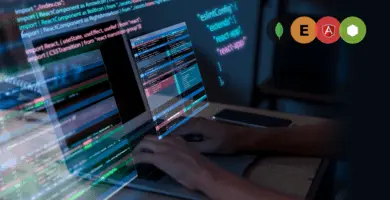
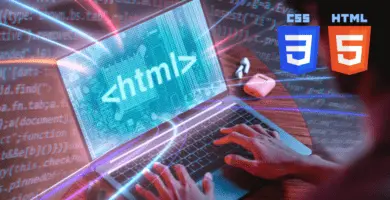



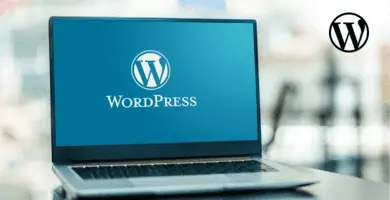




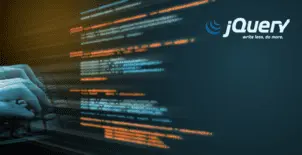
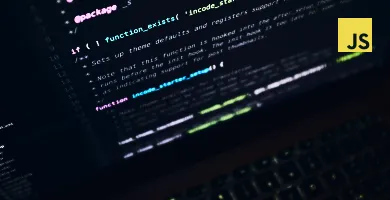
![Top 10 React Native Project Ideas [With Source Code] 13 React Native Project Ideas](https://www.guvi.in/blog/wp-content/uploads/2024/10/React-Native-Project-Ideas.webp)
![10 Impressive Django Project Ideas [With Source Code] 14 Django Project Ideas](https://www.guvi.in/blog/wp-content/uploads/2024/10/Django-Project-Ideas.webp)
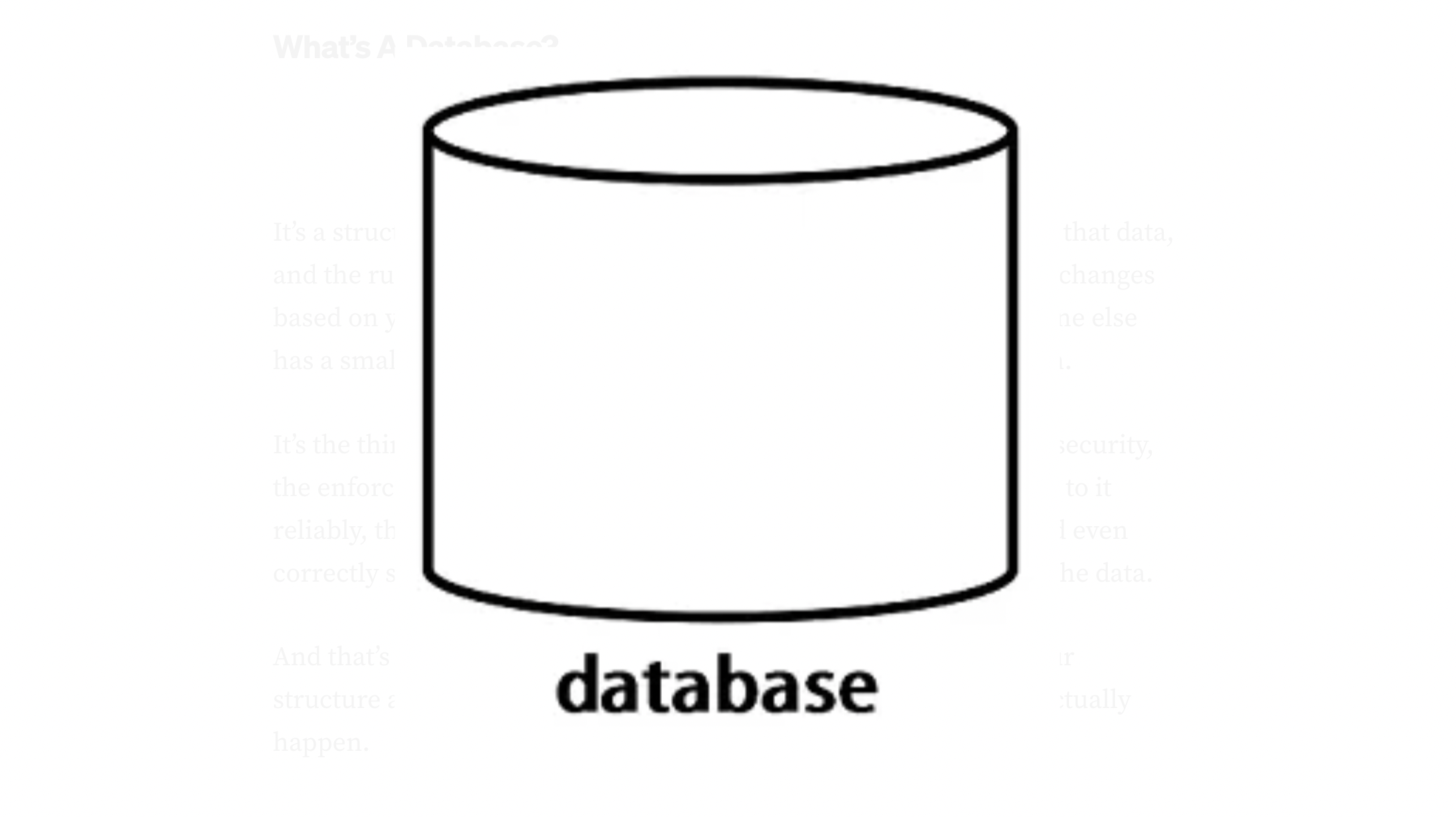
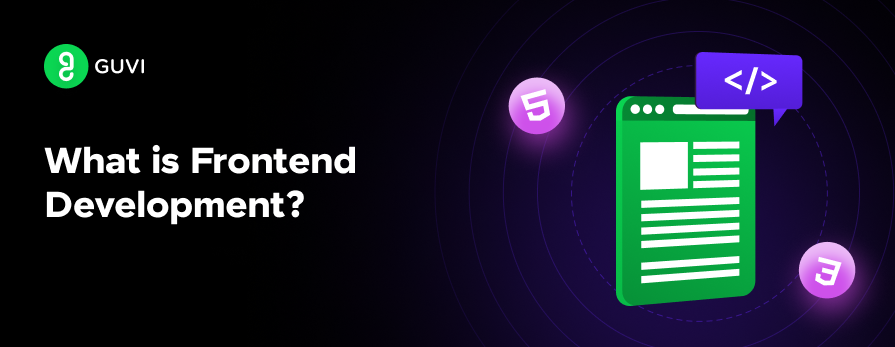
![12 Exciting Software Development Project Ideas [With Source Code] 17 Software Development Project Ideas](https://www.guvi.in/blog/wp-content/uploads/2024/10/Software-Development-Project-Ideas.webp)


![List of 10 Unique PHP Project Ideas [With Source Code] 20 PHP Project Ideas](https://www.guvi.in/blog/wp-content/uploads/2024/10/PHP-Project-Ideas.webp)
![10 Unique AngularJS Project Ideas [With Source Code] 21 AngularJS Project Ideas](https://www.guvi.in/blog/wp-content/uploads/2024/10/AngularJS-Project-Ideas-.webp)
Did you enjoy this article?